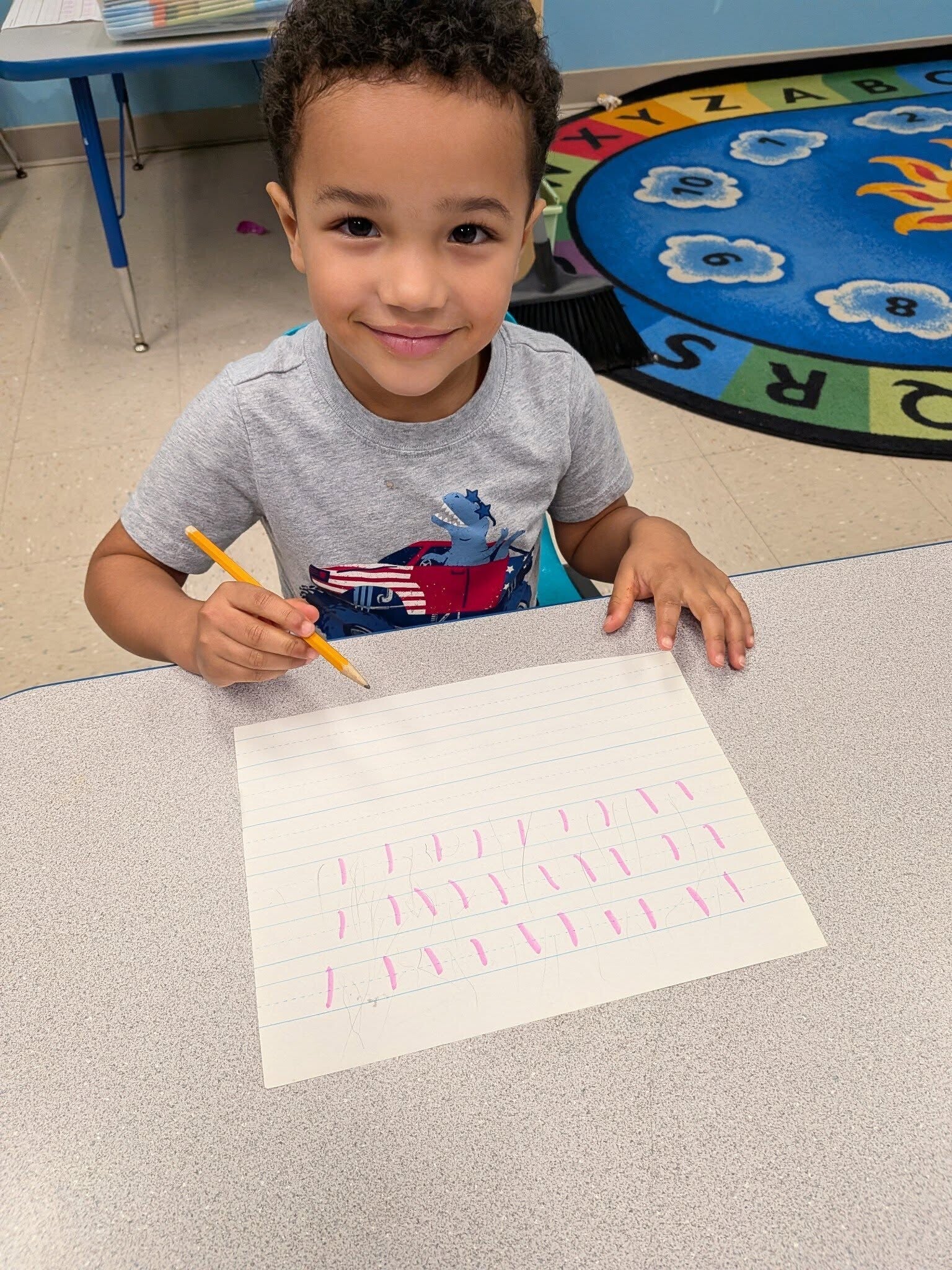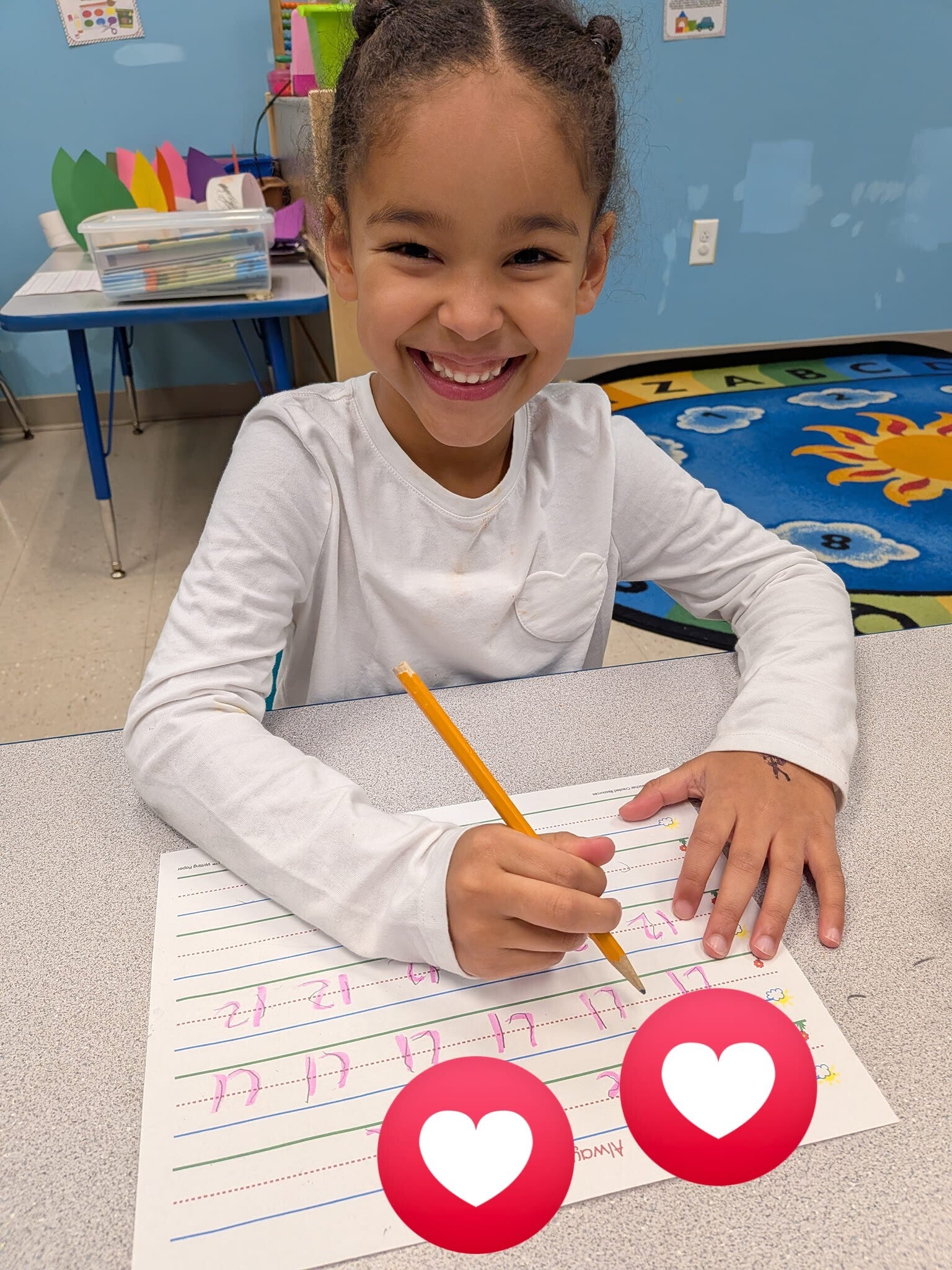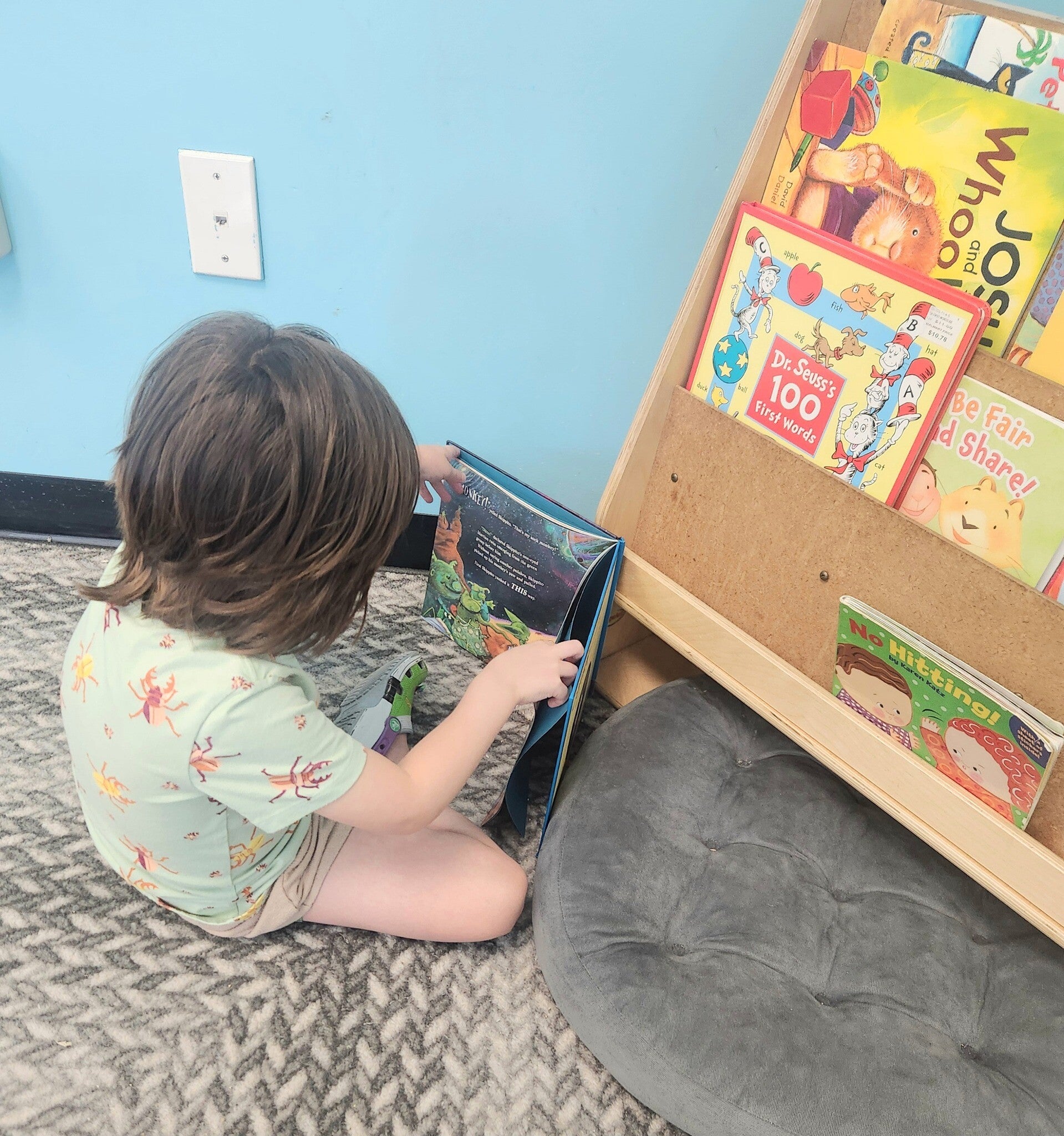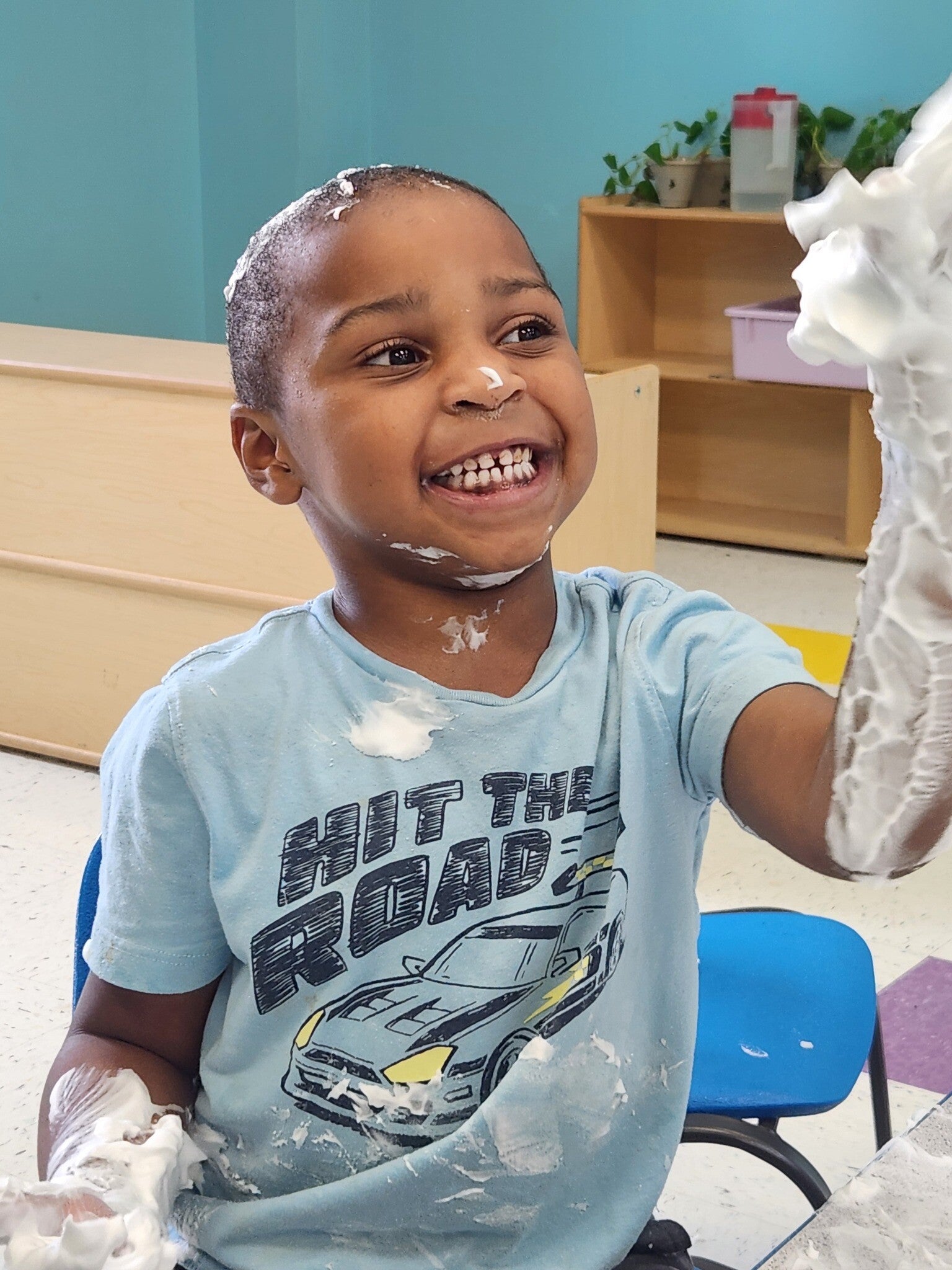Key Learning Areas in Pre-K
In our Pre-K classroom, children are preparing for kindergarten and beyond through playful, hands-on learning. Our focus is on building skills across several developmental areas:
-
Social & Emotional Growth – Practicing cooperation, sharing, taking turns, self-regulation, and building friendships.
-
Language & Literacy – Expanding vocabulary, recognizing letters and sounds, developing storytelling skills, and beginning early writing.
-
Cognitive & Early Math – Exploring numbers, patterns, shapes, counting, sorting, and problem-solving through engaging activities.
-
Fine & Gross Motor Skills – Strengthening hand coordination for writing and cutting, while also building balance, coordination, and strength through active play.
-
Creative Expression – Using music, art, dramatic play, and movement to encourage imagination and self-expression.
Together, these targets prepare children with the foundation they need for a smooth transition to kindergarten while nurturing curiosity, confidence, and a love of learning.

Social Emotional Growth
In our classroom, we provide many opportunities to practice:
-
Self-regulation – Recognizing and managing feelings like frustration, excitement, or disappointment with support from teachers.
-
Empathy & Respect – Learning to recognize others’ emotions, use kind words, and show care for classmates.
-
Cooperation & Sharing – Taking turns, working together on group projects, and learning how to compromise.
-
Problem-Solving – Practicing how to resolve conflicts with guidance, using words instead of physical responses.
-
Confidence & Independence – Encouraging children to make choices, express their ideas, and take pride in their accomplishments.

Language and Literacy
In our classroom, children explore language and literacy through:
-
Listening & Speaking – Building vocabulary, answering and asking questions, participating in group discussions, and expressing ideas clearly.
-
Storytelling & Comprehension – Engaging with stories read aloud, recalling details, predicting what might happen next, and retelling events in sequence.
-
Phonological Awareness – Playing with sounds in language through rhymes, songs, and games that emphasize beginning sounds and syllables.
-
Alphabet Knowledge – Recognizing and naming letters, connecting letters to their sounds, and beginning to identify letters in meaningful contexts (like their own names).
-
Early Writing Skills – Practicing holding writing tools, drawing, tracing, and beginning to write letters, names, and simple words.
-
Print Awareness – Understanding that print carries meaning, recognizing signs and labels, and beginning to follow text from left to right.

Cognitive and Early Math
In our classroom, children strengthen cognitive and early math skills through hands-on play, exploration, and guided activities such as:
-
Number Sense – Counting forward and backward, recognizing numerals, comparing groups of objects, and beginning to understand concepts like “more,” “less,” and “equal.”
-
Patterns & Sequencing – Identifying, creating, and extending patterns using colors, shapes, sounds, or movements.
-
Sorting & Classifying – Grouping objects by size, shape, color, or category, and explaining their reasoning.
-
Shapes & Spatial Awareness – Learning to name and describe shapes, exploring positional words (over, under, next to), and understanding size and distance.
-
Problem-Solving & Critical Thinking – Engaging in puzzles, building activities, and open-ended questions that encourage children to test ideas, make predictions, and find solutions.
-
Early Measurement – Using nonstandard and standard tools to explore concepts of length, weight, capacity, and time in playful contexts.
Fine and Gross Motor Development
Fine Motor Skills
Fine motor development involves strengthening the small muscles in the hands and fingers that are needed for tasks such as writing, cutting, and self-help routines. In Pre-K, children practice:
-
Holding pencils, crayons, and markers with improved control.
-
Using scissors to cut along lines and shapes.
-
Manipulating small objects like beads, blocks, or puzzles.
-
Practicing self-care skills such as buttoning, zipping, and using utensils.
These activities help children build the coordination and hand strength needed for kindergarten readiness.
Gross Motor Skills
Gross motor development focuses on large muscle groups used for balance, strength, and coordination. Children in Pre-K gain these skills through active play, both indoors and outdoors, by:
-
Running, jumping, hopping, and skipping with increased coordination.
-
Climbing, balancing, and navigating obstacle courses.
-
Throwing, catching, and kicking balls.
-
Participating in group games that require movement and spatial awareness.
Through gross motor play, children build confidence in their physical abilities, develop teamwork skills, and establish healthy habits of movement and exercise.

Creative Expression
In our classroom, children engage in creative expression through:
-
Art – Exploring paint, markers, crayons, clay, and collage materials to create unique works that reflect their ideas and feelings. Children practice fine motor control while learning to experiment with color, shape, and design.
-
Music & Movement – Singing songs, playing instruments, clapping rhythms, and moving to music to build coordination, listening skills, and self-expression.
-
Dramatic Play – Using costumes, props, and role-play to act out real-life scenarios and imaginary stories, which fosters language growth, empathy, and social skills.
-
Storytelling & Imagination – Creating and sharing their own stories, which encourages language development, sequencing, and creativity.